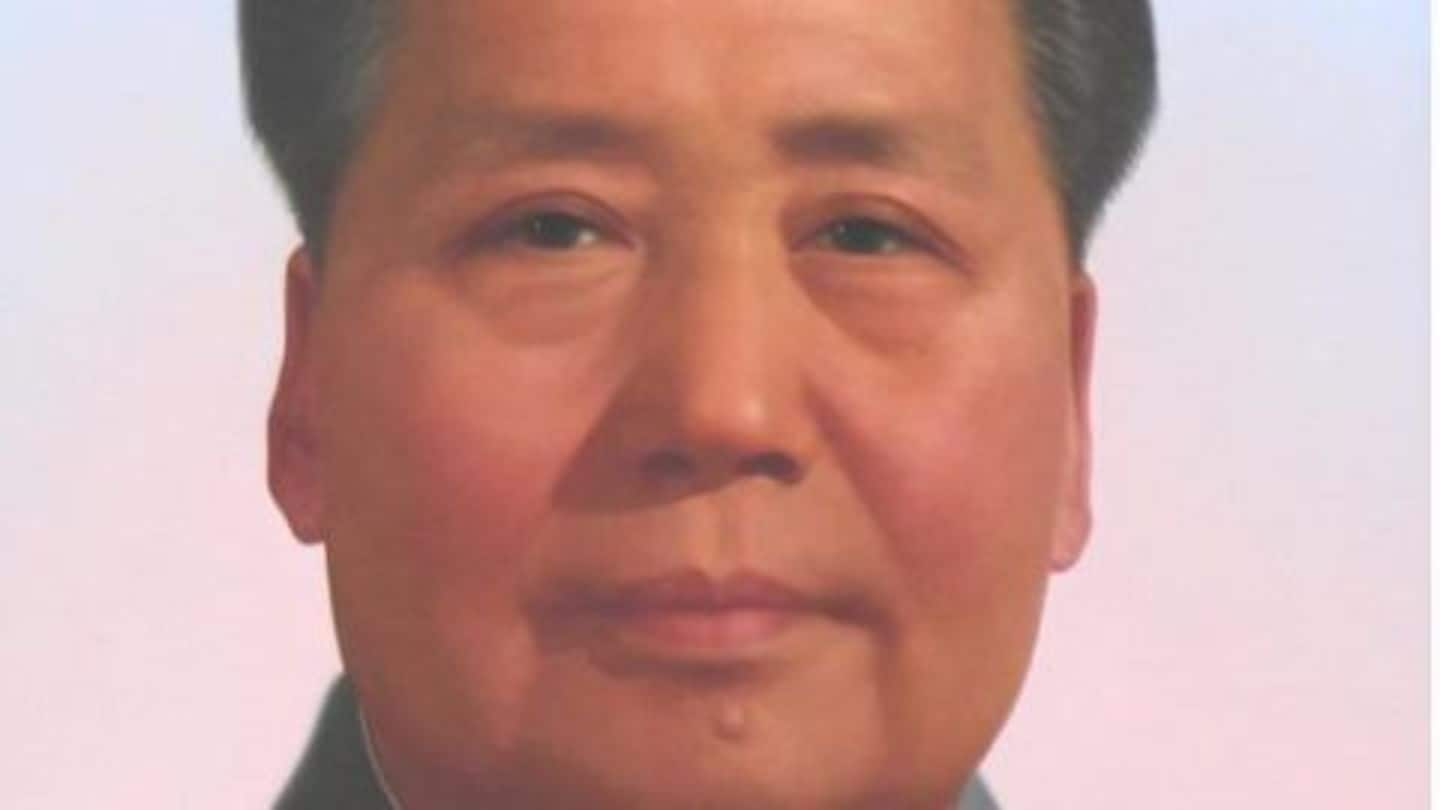
Massive Mao statue appears in Chinese countryside
What's the story
A 37 meter tall statue of the founding father of the People's Republic of China, Mao Zedong has been constructed in the Henan province in China. The golden statue was constructed at a cost of approximately 3 million Yuan, as a homage to the great Chinese leader. Sources state that local businessmen and villagers contributed the 3 million Yuan for the statue's construction.
Mao Zedong
Who was Mao Zedong?
Mao Zedong was the Chairman of the Communist party of China (CPC) and the founder of the People's Republic of China, which was established in 1949. He was born into a wealthy family in the Hunan province in 1893 and had strong nationalist and anti-imperialist leanings. He converted to Marxism–Leninism at Peking University in the 1920s and became a founding member of the CPC.
The PRC
A new leader emerges
The People's Republic of China was established on 1 October, 1949, under the leadership of the Chiarman of the CPC, Mao Zedong. He was also the Chairman of the CPC's Central Military Commission, making him the political, as well as the military Commander-in-Chief of China. In 1950, Mao startled international observers by sending troops to reinforce the North Korean army in the Korean war.
Consolidation
The three-anti/five-anti campaigns
In 1951, Mao launched the three-anti campaign to tackle corruption, waste and bureaucracy within the CPC and Opposition Parties. In 1952, he launched the five-anti campaign to tackle bribery, theft of state property, tax evasion, stealing state secrets, and stealing economic information by the business class in China. Through these two campaigns Mao executed thousands of his detractors, consolidating his power immensely.
Chinese Communism
The Great Leap Forward
In 1958, Mao launched the Great Leap Forward, an economic plan that sought to define the Chinese communism model. Under the plan, mining for iron ore and steel was stepped up and small agricultural collectives were merged into large "people's communes". However, the plan's execution was flawed and agricultural output dropped and millions died in famines, leading Mao to abandon the plan in 1962.
Soviet Split
The Sino-Soviet Split
In 1959, USSR leader Nikita Khruschev and Mao Zedong cut off ties, over leadership of communism in the world. After the death of Stalin, Mao assumed that the legacy of Marxism would fall to him, leading to tensions between him and Khruschev. Khruschev, who had sent Soviet engineers and technicians to help the technological advancement of China immediately withdrew all his support, isolating China.
Cultural Revolution
The Chinese cultural revolution
In an attempt to re-assert his authority, Mao launched the 'Cultural Revolution' in 1966, aiming to purge the country of 'impure' elements and revive the revolutionary spirit. The Red Guard, a student movement was formed as a nation-wide movement to destroy old culture, habits, customs and ideas. One-and-a-half million people died and much of the country's cultural heritage was destroyed.
Death
The death of a revolutionary
Mao was a heavy smoker during his early years and he suffered multiple lung and heart ailments while in office. Mao suffered a major heart attack on 5 September 1976, following which he died on 9 September. Mao's body was preserved for one week, during which time, over 1 million people including 400,000 foreign dignitaries visited and paid their last respects to Mao.
Information
Personal life of Mao Zedong
After his death, Mao's personal physician Li Zhisui wrote a book 'The Private Life of Chairman Mao'. The book describes in great detail Mao's personal habits including chain-smoking, laziness, addiction to sleeping pills and large number of sexual partners.